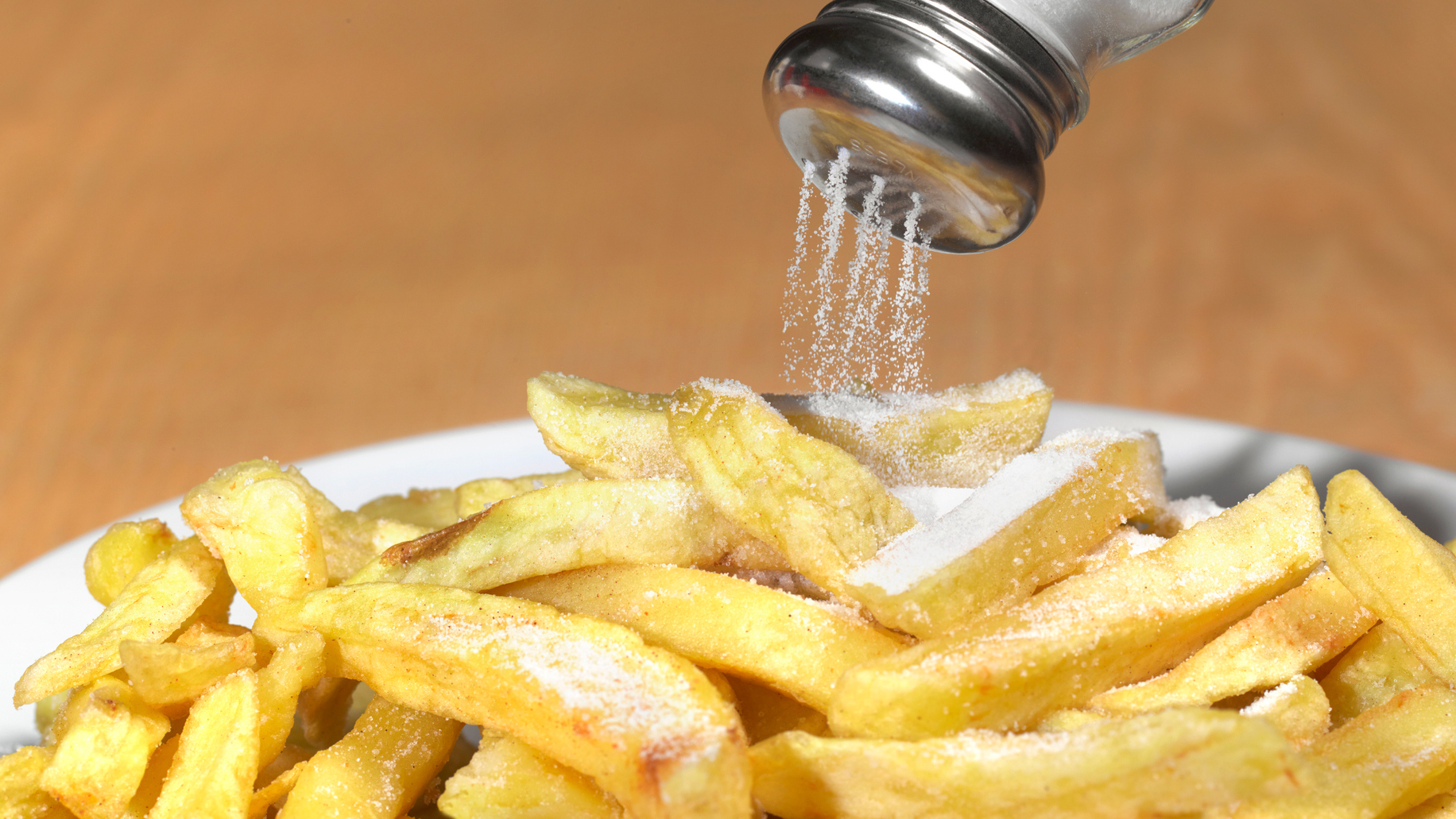Why salt is bad for your brain – and which healthy diet foods can improve it
Too much salt can harm your brain in the same way as a stroke, according to new science


Start your week with achievable workout ideas, health tips and wellbeing advice in your inbox.
You are now subscribed
Your newsletter sign-up was successful
Salt is not just a condiment: it comes pre-loaded in a lot of our favorite processed foods. Checking the sodium content of a bag of potato chips, or realizing how much salt has been added to a dish from your best local restaurant, is a stark reminder of how much salt we accidentally consume on a daily basis.
We know too much salt is bad for us: the FDA recommends people limit their sodium intake to less than 2,300mg per day – that's just one teaspoon of table salt. It's worth learning how to cook healthier meals (start with our best vegan cookbooks guide) as too much salt is well-known to lead to heart disease, hypertension and high blood pressure. However, it can also negatively affect our brain, according to one new study.
The research, published by Georgia State University, examined how the brain is affected by salt consumption. The research looked at a "deep brain region", a part of your brain which is involved in the processes of drinking and eating, among other tasks, and found the blood flow to this part of the brain was affected by salt intake.

Dr Javier Stern, professor of neuroscience at Georgia State, said: "The findings took us by surprise because we saw vasoconstriction [reduced blood flow], which is the opposite of what most people described in the cortex in response to a sensory stimulus.
"Reduced blood flow is normally observed in the cortex in the case of diseases like Alzheimer's or after a stroke or ischemia." That's right – too much salt on a regular basis, and your brain begins to be affected in the same way as it might during a stroke. So it's best to cut down on the salty snacks and processed foods.
In their place, opt for foods that enhance and improve brain health. According to the National Institute of Health, omega-3 fatty acids found in oily fish, nuts, soy and other foods are essential for brain health. One of those acids, DHA, is said to be "quantitatively the most important omega-3 PUFA in the brain and has consistently been shown to have unique and indispensable roles in the neuronal membrane".
As well as fish, nuts, legumes, high-quality red meat and seeds, you can grab omega-3 from some of the best fish oil supplements, such as cod liver oil. Other studies suggest that dehydration can negatively affect brain health, so make sure you take that brain-boosting capsule with plenty of water, too.
Start your week with achievable workout ideas, health tips and wellbeing advice in your inbox.
Matt Evans is an experienced health and fitness journalist and is currently Fitness and Wellbeing Editor at TechRadar, covering all things exercise and nutrition on Fit&Well's tech-focused sister site. Matt originally discovered exercise through martial arts: he holds a black belt in Karate and remains a keen runner, gym-goer, and infrequent yogi. His top fitness tip? Stretch.
